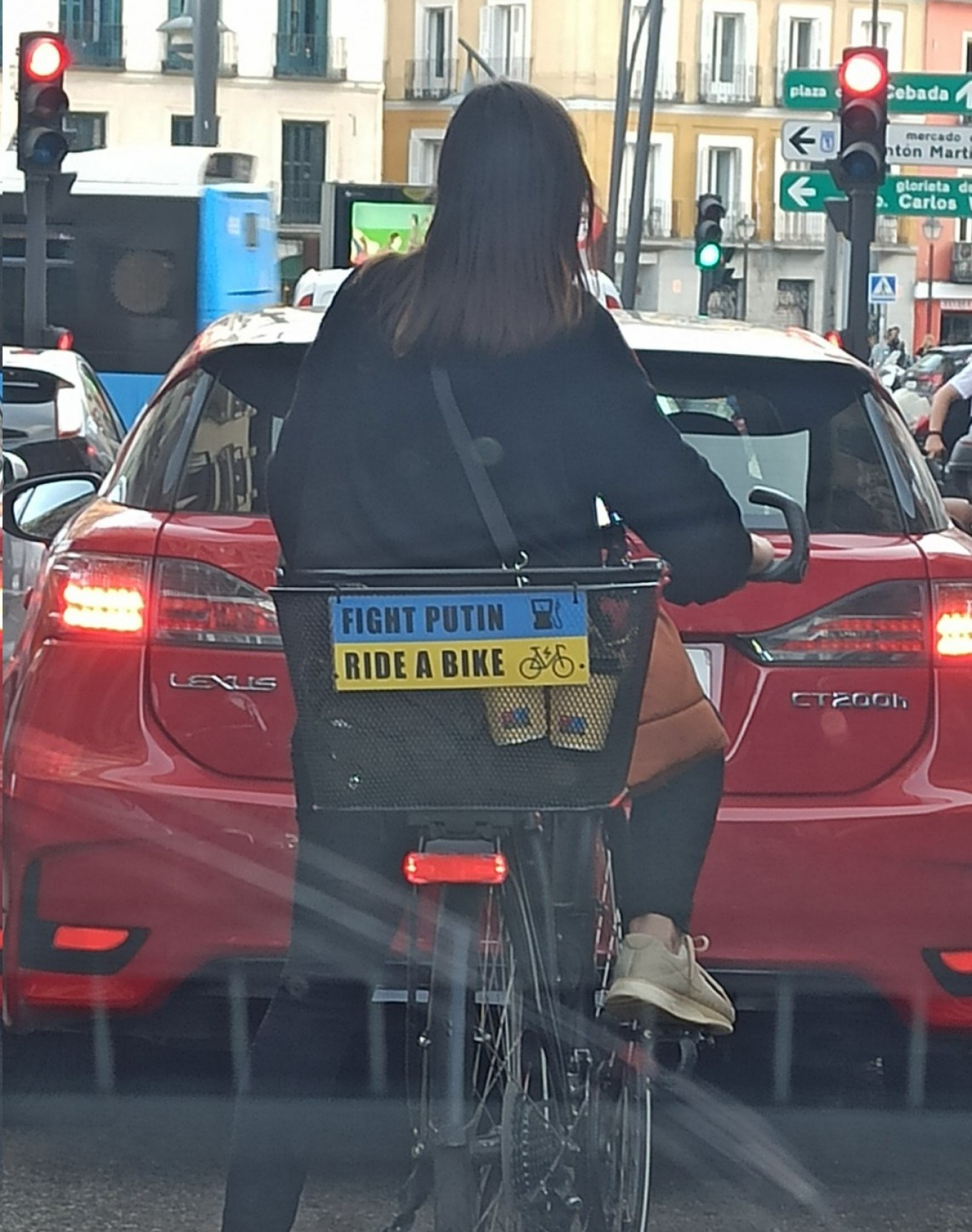Harry Gray, a 26-year-old British cycling campaigner and clothing designer in Salford, Manchester didn’t anticipate that his poster would go viral. The poster has a simple message: Fight Putin / Ride a Bike.
The war in Ukraine has shone a light on much of the world’s reliance on Russian gas, which accounts for some 40% of the EU’s imports and 45% of its consumption.
The poster first spread through green and cycling circles and then eventually reached the wider public, helped along when Per Bolund, leader of the Swedish Green Party, and the hacker group Anonymous posted it on Twitter.
But for Gray, “the poster isn’t the end of the discussion and it’s not just about bikes.”
The discussion is about the war in Ukraine. “I felt powerless when the war in Ukraine started,” he told The Moscow Times. “I wanted to talk about how we can help to bring an end to the war without using military force. I wanted to do my bit on behalf of cyclists, but the poster can be adapted to highlight renewable energy sources, too.” Wticker versions of the poster are available on his clothing website errornogo.

After seeing Gray’s poster online, avid cyclist Hamish Belding, 42, from Pontypridd, Wales, laminated his own version and stuck it to his bike rack. “Buying Russian oil/gas helps fund the invasion of Ukraine, so I feel the least I can do to help fight Putin is to reduce reliance on fossil fuels and encourage people to use a bike for everyday journeys instead of the car,” he told The Moscow Times.
Belding has received unanimously positive responses to his bike sign, both online, where he got 30,000 impressions on his Twitter post within a matter of hours, and in person. “I’ve had people stop me and say they love the design and ask where they can get one. Many have pledged to try and use their bikes more if it plays a part in stopping the invasion.”
For 32-year-old Olivia, the sticker — which she’d seen on the streets of London — is much more than a pro-cycling campaign. “It’s part of a wider global issue. Even though in the U.K. we don’t use a lot of Russian gas, we all need to get behind this cause.” The poster, she told The Moscow Times, “makes its point and it starts conversations.”

The viral graphic is still gaining momentum and has so far been spotted on the streets in the U.K., Italy, France, Germany, Sweden and America at climate protests, cycle rides collecting donations for Ukraine. It has also been used as a projected image by projection activist Alan Marling.
For Gray, who created the original design, the takeaway is simple. “People can make a real individual impact on this war — we need to keep talking, and posters like this make it hard to forget.”





